- Home
- Jack Hardin
Lonely Coast Page 6
Lonely Coast Read online
Page 6
Two days before she died.
Now, it sat idly on Ellie’s counter. Ellie couldn't bring herself to box it up and put it away. It was a gift from a dear friend, and she wasn’t going to let Vida’s memory die.
Citrus trotted back in, and Ellie poured a generous amount of food in his bowl. She went into the bathroom and turned on the shower, peeled off her clothes, and spent the next twenty minutes under a stream of hot water that failed to wash the day’s emotions from her soul. She needed a drink and easy conversation that didn’t have to do with death or fear or loss. But she sensed she would be out of luck tonight. The entire country was speaking about what the news had so inanely labeled, “The Terror in Tampa.”
She stepped from the shower and toweled off, then changed into shorts and a tank top before returning to the kitchen and grabbing the dog leash off a hook. Citrus was curled back up on his bed looking miserable, his water withdrawal starting to get the best of him.
Ellie clicked the snap hook with her thumb, and the dog shot out of his depressive coma like he had just been informed that the cat across the canal had been murdered. He bolted around the living room with his ears back, bounced off the back of the couch, then crashed into Ellie’s ankles. He stared up at her while cleaning the floor with his tail. Ellie got the leash on him and led him out the front door.
It was nautical twilight now, and the lights set above the canal’s private docks danced on the surface of the dark water. Palm fronds rustled like dry corn in unattended fields. Ellie went to the end of her street and took Fourth Avenue to Oleander Street, where she turned left toward the southernmost tip of the island.
A few minutes later, she walked up the ramp leading to the wide boardwalk that contained the small wood-lapped building that was The Salty Mangrove. She passed up several picnic tables and crossed the boardwalk to the docks, where she tied the leash to a piling that stood off from the edge of the water. “There,” she said to the dog. “That’s as close to the Sound as you’re going to get.”
Citrus eyed her as though he had just been taken to a water park and chained to the front gate.
“Hey, you know the deal down here. I let you off that string and you’re in the water. I’m not jumping in to get you.” He huffed and then turned away from Ellie, facing the docks with his chin held high, like he had won a small victory just by being down here.
Ellie turned and went to the tiki hut, where ancient Christmas lights curled up even older pilings and Van Morrison played softly over the bar’s speakers, promising that he would be coming home when the foghorn blew. Far down the Norma Jean pier, a couple was holding hands as they slowly worked their way to the end.
Ellie slipped onto a barstool. The flat-screen television above the bar was turned off. She didn’t have to ask why. Major had always seen the bar as a place to decompress, mingle with friends, and let the events of the day slip off your shoulders. Tampa was already on everyone’s minds and lips; she knew that he wouldn’t want to stoke the fire.
Major materialized from the kitchen. “Ellie.” He set a container of fresh lime wedges to the side and leaned in. “Hey, kiddo.”
“Hey, Major.”
He studied her face, and she made a poor attempt at a smile. “I’m going to guess today was an IPA—no—a merlot kind of day,” he said.
The smile came freely now, and it was enough for an answer.
By all accounts, Warren Hall—Major—was a handsome man. At just under six feet, he came in at average height, and broad shoulders and thick forearms gave him a stocky appearance. His face was square, eyes set back under low brows, and he kept his graying auburn hair buzzed close to the scalp, although of late he had talked about growing it out. His face held the weathered sun-stitched lines that years near wind-swept, salty water will etch into a man. He wore cargo shorts and a white, short-sleeved button-down shirt and double-banded Birkenstocks. Without question, he was a cornerstone of the local community. Warren Hall sponsored Little League teams, chaired the Rotary Club, and contributed both time and money to the Lee County food bank. More than once, he’d been spurred on to take a run at the mayor's chair, but he valued simplicity too much to give the idea more than a passing glance. He was a businessman and a philanthropist, he would urge, not a politician.
Biologically, Ellie and Warren were not related, and yet he was a constant figure in all of her earliest memories. Warren and her father had been the best of friends going back to their early college days. He had always been her uncle, and time had erased the reason Ellie called him Major; she just always had.
“Here you are, kiddo.” Major set a glass in front of her. It was half-filled with red wine. She slipped her fingers around the stem and set the rim to her lips, took a generous swallow.
“Thank you,” she said. She set the glass down. “How is everyone down here?”
“About like you would expect. Nervous, angry, and just generally unsettled. Gloria won’t stop talking about it. Can’t say that I blame her.”
Ellie looked down the bar. Its two permanent fixtures were absent. “Where are Fu and Gloria?”
“They went up island. Chester Ridley said something about wanting to sell his drone. Fu’s gotten in his head that he wants to start making videos of the island.”
“Oh, boy.”
“That about sums it up.” A patron motioned for a refill, and Major excused himself.
Ellie reached for her glass again and sipped from it with a little more zeal than was typical. A hand on her shoulder nearly startled her. She looked over to see her sister sliding onto the stool beside her. Katie was two years Ellie’s junior, a brunette to Ellie’s blond. Major reappeared and set a longneck in front of her.
“Hey,” Katie said, “how did it go in Tampa?”
“I almost started smoking today.” Ellie hated cigarettes, mostly because she didn’t like the taste of dead raccoon in her mouth.
“That bad, huh?” Katie lowered her voice. “Were you at the site?”
Ellie nodded. “It’s as bad as it looks on TV.”
“I’m sorry, kiddo,” Major shook his head. “Any ideas who’s behind it?”
“Not yet.”
A faint rattle coming from further up Stringfellow Road disturbed the peaceful aura around the bar and grew louder with each passing second, finally reaching a crescendo in what sounded like a flock of metallic geese choking on a box of rusted bolts. Major sighed. “If they don’t get that thing fixed soon, I’m going to make it disappear.”
Last month Fu and Gloria Wang had purchased a 1969 VW Beetle from an old friend down in Everglades City. The classic car was a triple white—white interior, vinyl top, and exterior. It would have been a gem in its prime, but, as if their friend were a classic moron, the car had not been well-maintained. Gloria was the only Wang who had a driver’s license, and her lack of sense behind the wheel had convinced more than a few locals that someone at the DMV had been paid off.
Ellie leaned back on her barstool and looked out toward the narrow strip of crushed shells along Monroe Canal that served as a parking area. The Beetle came into view and vibrated into a parking space. When Gloria put it into park, it sounded like a toddler had found all the silverware and tossed them in a blender. A small explosion around the general vicinity of the tailpipes signaled that the vehicle had turned off. The Wangs made their way up the ramp and across the boardwalk, Fu waddling back-and-forth on a prosthetic leg that was a few inches too short.
“Hi, Ellie!” Gloria yelled, partially deaf from the Beetle’s auditory assault.
“Hey, Gloria. How’s the new car?”
She leaned closer. “What’s that?”
“How’s the new car?” Ellie repeated, a little louder.
Gloria beamed. “We love it!”
“Fu,” Major said, “did you get the drone?”
“Yes, yes,” he nodded furiously. “Tomorrow.”
“It’s a lot bigger than we thought,” Gloria said. “But Chester is going to show us
how to use it in the morning. Then it’s all ours.”
“And what are you going to do with it?” Ellie asked.
“Fu wants to film the island and put it on YouTube. There’s a lot of tourists and RVers who love stuff like that, you know.”
Beside Ellie, Katie sighed heavily. Ellie’s sisterly intuition buzzed somewhere in the back of her mind. “Hey,” she said, “walk with me.” Katie grabbed her beer, Ellie her wine, and they started away from the bar. From somewhere behind them, Citrus barked his disapproval that he had not been invited down the pier.
“Want to talk about it?” Ellie finally asked.
“Nope. Do you want to talk about your day?”
“Not really.”
“Me either.” So the sisters stared silently off into the dark water below, listening as it lapped at the pilings and the breeze stirred the tips of their hair.
Ellie finally broke the stalemate. “I had to interview a mother in the hospital whose six-year-old son was killed in the blast. She was in the back of the bus and by some miracle made it out alive. She’s lost an eye, has a lot of internal damage, and I don’t know that they’re going to be able to save her feet.” She took another sip of her wine. “Your turn.”
Katie pushed back off the railing and started walking slowly down the pier again. Ellie followed beside her. “It seems trivial in light of what happened in Tampa,” Katie said.
“But it’s not trivial because it’s bothering you.”
Katie stopped again and looked out toward a fishing boat working its way closer to Sanibel. “Chloe asked me about her dad again today.”
Hearing that made Ellie’s heart hurt. Her niece, Chloe, had just turned seven, and her father had never been in her life. Katie had conceived her at the tail end of an extended rebellious period when she dated a crummy guy who could have made Roman Polaski look like he had good intentions. Chloe’s father had met her only once after she was born, and she had been too young to remember. Katie had broken up with him soon after, and between a couple of short stints in prison and showing no desire to hold down a real job, Katie had finally ordered him out of their lives for good. The last anyone had bothered to check, he had moved up north to Tennessee or Kentucky.
“She hasn’t asked about him in over a year,” Katie said. “I’d just tell her the truth, but I don’t want her growing up feeling abandoned. She’s such a good kid.”
“She has us...and Major,” Ellie said, “and Dad will be back soon enough. One day you’ll meet the right guy, and Chloe will grow up viewing him as her father. That will be a good day.”
“Yeah,” Katie said quietly, albeit not with much enthusiasm.
Ellie put an arm around her sister. “Come on, let’s get back. It’s been a long day for everyone.”
Chapter Eight
The bartender would tell the police that the man in question had narrow, squinty eyes, a wide mouth, a large puff of black hair that hung about his head like a dark corona, and an unruly beard to match. The bartender would also mention that the man showed a clear resemblance to a young Jerry Garcia. But taller, much taller—and a little wider, too.
But that would be later, after the man in question finished up a meeting in the parking lot and after he walked in for a drink, discovered that they were out of Bud Light Lime, and trashed the place before making a slow and confident exit while the bartender yelled at him from a safe distance behind the bar. For now, though, he waited. Waited with the patience of a man still high in the happy cumulus clouds created by the well-rolled joint between his fingertips. The marijuana strain was good, not as potent as his usual—Blue Dream—which hadn’t made it in from California yet. But it relaxed him and eased the subterranean anger that he always carried with him. While he waited, he listened to Springsteen sing “Thunder Road” and, while he had initially planned on listening to just the one song, his appointment did not actually arrive until he had listened to all eight tracks on the Born To Run album and “Thunder Road” for a second time—which meant that his appointment was late by forty-three minutes. By then, the effects of the THC had worn off considerably, and his anger returned like someone had left it to simmer on the stovetop.
He had driven nine hours straight to be here on time, but Alvin, who did not live more than half an hour from here, was late.
An obnoxious rap came at his window—just as The Boss was singing about the ride not being free—and he flinched. He cursed a long string and looked out the window at his appointment, who stood there with a timid and apologetic look on his face. He opened the car door and exited the vehicle.
“Sorry I’m late, Carl. Mary-Anne was late getting home and, well, you know we only have the one car.”
Carl pressed his lips together and forced a smile over clenched teeth. His cut-off jean jacket shifted over his chest as he leaned in. “Forty-three minutes.” He leaned in. “You leave me waiting for forty-three minutes? Today of all days? Alvin. Come on.”
Alvin, who was as thin as a chicken leg on Weight Watchers, nodded nervously. “I know, it won’t happen again.”
“When you’re late, it makes me angry, Alvin. You know how I get when I get angry.”
“Yeah. I know. I’ll give Mary-Anne hell, okay?”
“Do you have it?”
“Yeah.” Alvin led Carl to his car, where he opened the front passenger door and unbuckled the seat belt strapped across a cardboard box on the seat. The box was heavy, and he grunted and shuffled his feet like a pained penguin to get it out of the car and into Carl’s waiting hands. Carl set it on the cracked asphalt and quickly inspected its contents. He smiled.
“Yes. Yes…this is great, Alvin. You did good. Do you know what this means?”
The truth was, Alvin did not know. But he smiled anyway. “Yeah. It’s going to be great.”
Carl heaved up the box and held it against his midsection. “You’re keeping a tight lip, right? You can’t even tell Mary-Anne. Especially not her.”
“I know.”
Carl nodded. “All right. Now get out of here. I’ll be in touch. And if you’re ever late again, I’ve got a pair of brass knuckles I’ll be sure to acquaint with your jawline.”
Alvin nodded his understanding and quickly got into his car and drove off.
Carl Trueman put the box into the trunk of his Altima and then started across the parking lot toward the bar.
He had a hankering for a Bud Light Lime.
Chapter Nine
Seven Years Earlier
Novosibirsk, Russian Federation
The neck of the bottle clattered along the edge of the glass as Pavel Petronovich poured himself another generous serving of vodka. He tossed the empty bottle away from him, and it bounced off the wall, splintering onto the floor in an explosion of tiny diamonds.
He wasn’t drunk, not yet. But he was angry, and the vodka had yet to cool the hot coals of indignation that had begun to settle over him earlier this afternoon.
Turgenev, his distributor, was late for the third time in a row.
He wouldn’t be late again.
Pavel eyed the Makarov handgun sitting beside his glass. Since its introduction seventy years ago, the pistol had been a favorite among state security agents in the USSR and officers in the North Vietnamese Army. The Russian Ministry of Defence continued to issue the ubiquitous semi-automatic pistol to police officers, soldiers, and intelligence personnel. The gun was concealable and compact. It fired 9 x 18 millimeter rounds, and its simplistic steel design made it significantly heavier than comparable firearms.
Pavel loved it.
He had carried it on his person for over a decade now. It had been the means by which well over a dozen men had met their final demise. And if Turgenev did not show soon—if he even showed at all—then he would add one more to that shadowy list.
Pavel’s seventeen-year-old son was sitting in a high back chair in the corner of the room. It, like everything else in the building, was worn down, dirty, threadbare, and dull. His son’
s head listed tiredly to the side, his eyes closed, his arms crossed tightly against his chest. Pavel called out to him. “Peter. Peter, come here.”
Peter’s eyes flicked open. He sat up straight and yawned, then peeled himself off the chair and approached the table. “Come sit.” His father motioned to the wooden chair beside him. Peter resettled his parka on his shoulders and did as he was told. His father slid an empty glass out from the center of the table, grabbed a second bottle of vodka, and poured. “Drink up, boy.”
From across the table, Anatoly, Pavel’s number one, sat grinning, watching Peter as he threw back the glass and swallowed. Peter slammed the glass back on the table and winced as he swallowed, his eyes bulging in response to the unfamiliar sensation of heat cascading down his throat and chest. The two older men laughed. Pavel set a heavy hand on his son’s shoulder. “One day, you will outdrink us all, boy,” and he laughed heartily.
Peter nodded haltingly, answering with an unsure and hesitant smile.
His father stood up. The long, narrow room was ancient, its exterior walls cracked and full of holes, its wooden plank floors dirty with unwashed grease and dirt and grime that had accumulated over decades of sanitary neglect. Above was a high ceiling with exposed rafters, below, a bricked fireplace that was blazing hot, working furiously to mitigate against the frigid air outside. Pavel approached the flames. He held his hands out and closed his eyes as his palms absorbed the heat.

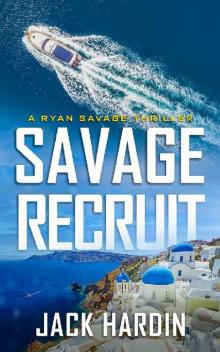 Savage Recruit (Ryan Savage Thriller Series Book 8)
Savage Recruit (Ryan Savage Thriller Series Book 8)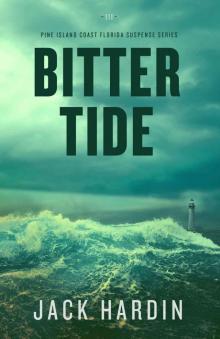 Bitter Tide
Bitter Tide Vacant Shore
Vacant Shore Breakwater
Breakwater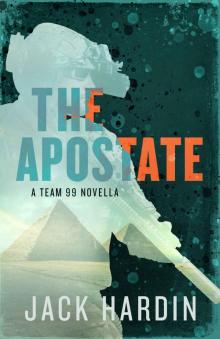 The Apostate
The Apostate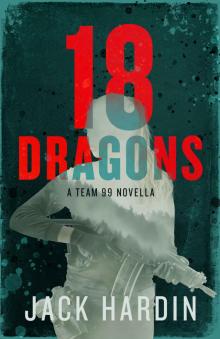 18 Dragons
18 Dragons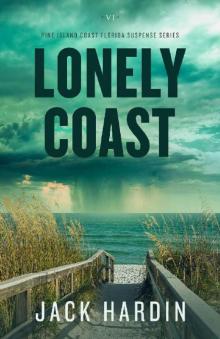 Lonely Coast
Lonely Coast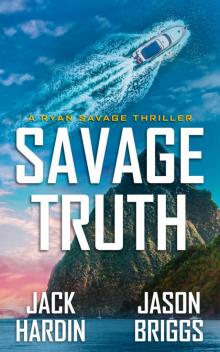 Savage Truth
Savage Truth Broken Stern_An Ellie O'Conner Novel
Broken Stern_An Ellie O'Conner Novel Broken Stern: An Ellie O'Conner Novel (Pine Island Coast Florida Suspense Series) Book 1
Broken Stern: An Ellie O'Conner Novel (Pine Island Coast Florida Suspense Series) Book 1